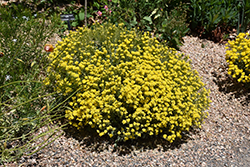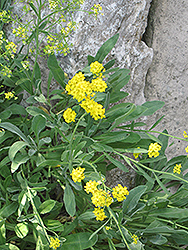Fri & Sat 8am - 8pm
Sun 8am - 7pm
Anytown, USA 12345
fax: 261.787.0463
e-mail: info@successgc.com


Plant Finder

Height: 8 inches
Spread: 20 inches
Sunlight:
![]()
Hardiness Zone: 3a
Other Names: Alyssum saxatile
Description:
Sown in early spring, this cherished heirloom quickly matures into a glorious mat of bright yellow in a dazzling floral display all season long; trim back to get returning blooms; an arresting sight when massed
Ornamental Features
Basket Of Gold Alyssum is covered in stunning clusters of fragrant yellow star-shaped flowers along the stems from mid spring to mid fall. Its small narrow leaves remain grayish green in color throughout the season.
Landscape Attributes
Basket Of Gold Alyssum is a dense herbaceous perennial with a ground-hugging habit of growth. Its relatively fine texture sets it apart from other garden plants with less refined foliage.
This plant will require occasional maintenance and upkeep, and is best cleaned up in early spring before it resumes active growth for the season. It is a good choice for attracting bees and butterflies to your yard, but is not particularly attractive to deer who tend to leave it alone in favor of tastier treats. It has no significant negative characteristics.
Basket Of Gold Alyssum is recommended for the following landscape applications;
- Mass Planting
- Rock/Alpine Gardens
- Border Edging
- General Garden Use
Planting & Growing
Basket Of Gold Alyssum will grow to be about 7 inches tall at maturity, with a spread of 20 inches. Its foliage tends to remain low and dense right to the ground. It grows at a medium rate, and tends to be biennial, meaning that it puts on vegetative growth the first year, flowers the second, and then dies. As an herbaceous perennial, this plant will usually die back to the crown each winter, and will regrow from the base each spring. Be careful not to disturb the crown in late winter when it may not be readily seen!
This plant should only be grown in full sunlight. It does best in average to evenly moist conditions, but will not tolerate standing water. It is not particular as to soil pH, but grows best in rich soils. It is somewhat tolerant of urban pollution. This is a selected variety of a species not originally from North America.

